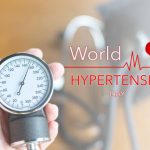In the study, researchers show that many of the 2,300 people they evaluated with high blood pressure also had abnormal blood levels of cholesterol and triglycerides which further aggravates their risk of heart disease and stroke.
But the real kicker: In people with this double whammy, nine in 10 were either untreated or undertreated for their cholesterol problem.
Not Average Patient
"This is really quite surprising because the people we studied are not like the average patient with high blood pressure," says senior study researcher Stephen Turner, MD, of the Mayo Clinic in Rochester, Minn.
"These are people who are well aware of their condition; in fact, they were recruited for this study because they all have a strong family history of hypertension," he tells WebMD. "By virtue of the fact they were more conscious of their health, we thought we'd see the same attention to their lipids, but that wasn't the case."
Who Should Be Blamed?
Are the patients or their doctors to blame?
"Probably it's a combination of both," says Turner, who specializes in treating hypertension. While his study didn't explore the "whys," there are several possible explanations: These people may have focused on what they considered their primary health risk -- high blood pressure, or they may not have followed their doctor's orders to take cholesterol-lowering medications, or they may have only visited specialists who concentrated only on treating hypertension without looking at other conditions.
"But it seems as though the awareness of problems with abnormal lipids is not reaching society and even doctors at the level of awareness in treating and controlling of high blood pressure," says Turner.
What does this mean to you?
"If you have high blood pressure, have your cholesterol checked regularly -- and vice versa," he advises. "There is also evidence that the same factors that cause bad lipids may also cause high blood pressure. Having both doesn't just add to your risk of cardiovascular disease - it multiplies the risk."
New Drug for Both Problems
Turner's finding, published in this week's Archives of Internal Medicine, comes just one week after a new drug became available for people with both high blood pressure and high cholesterol.
Caduet, approved by the FDA last February, is a combination of two popular drugs -- Norvasc, used to treat high blood pressure and angina (chest pain); and Lipitor, the popular cholesterol-lowering statin drug -- both produced by Pfizer, Inc.According to Pfizer, 55% of people with high blood pressure also have high cholesterol, and 43% of those with high cholesterol also have high blood pressure.
"The commonality and connectedness of high blood pressure and high cholesterol led us to the conclusion that the two conditions are intrinsically linked," Craig Hopkinson, MD, medical director of Pfizer Cardiovascular, says in a news release. "Therefore, it makes perfect sense that the medications be linked."
Agreed, says Turner. "Combination therapy is the way to go. When it comes to treating blood pressure, few doctors even start with just one drug anymore."
Single Pill or Better Lifestyle?
While he says that Caduet is too new to recommend as the go-to treatment for this "dual problem," he cites that a drug used in Europe that combines the two treatments has proven effective in treating patients similar to those in his study.
"There are some epidemiologists who believe that rather than focusing on screenings, we could better impact society's health by having everyone take 'polypill' (not yet developed) that would include some medication to lower blood pressure, some to lower cholesterol, aspirin, and maybe something else to help lower risk of diabetes," he says.
"Of course, if more people lost weight with diet and exercise, their blood pressure would drop, their lipids would improve, and their risk of diabetes would decrease without the need for this type of drug," Turner concludes.














